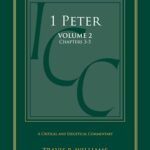How Long Lord? Will You Forget Me Forever?
 I have cried out with these words from Psalm 13:1a on a few occasions. How do I know that it is legitimate to apply this verse to my life? And what about other psalms? While there are many ways to determine this, one is to consider a psalm’s historical setting. In examining this, there are two areas to consider.
I have cried out with these words from Psalm 13:1a on a few occasions. How do I know that it is legitimate to apply this verse to my life? And what about other psalms? While there are many ways to determine this, one is to consider a psalm’s historical setting. In examining this, there are two areas to consider.
The first is from the superscriptions that begin a number of psalms. For example, Psalm 3, an individual lament, informs us of two things: the author—”a psalm of David”—and the historical setting—”when he fled from his son Absalom.” The second area would be from the other biblical data found within the psalm itself and from any other place in the canon. For example, Psalm 2:1–3 indicates that this royal psalm was written during a time of turmoil in Israel, and Acts 4:25 says that David was responsible for Psalm 2. The combined data shows that this psalm was written in a time of turmoil during the reign of David.
However, we should be careful not to become excessively precise in identifying the historical details when a psalm as well as any other portion of Scripture does not provide specific information. It appears that the authors of many psalms wanted their inscripturated poetry to be used by other worshippers so they purposely communicated on a more general level. This was part of the their intention. In this type of context, we need to be content with a general knowledge of the historical setting. The superscription for Psalm 13, an individual lament, states two items: its musician—“for the director of music”—and author—“a psalm of David.” Unlike the heading in Psalm 3, Psalm 13 provides no information about its historical setting, though the superscription suggests that this psalm was composed during David’s lifetime. The content of Psalm 13 gives more information. This psalm indicates that David was in a time of extreme spiritual agony where God’s face seemed hidden from him and his enemies would triumph over him. In this agony, David prays to God and turns in faith to focus on God’s unfailing love (v. 5). In the end, he will be able to sing God’s praises about his goodness (v. 6). As the content of this psalm suggests, the details of this psalm could have taken place a number of different times in David’s life. He wrote this lament psalm in a generalized manner so that it could be used by other struggling worshippers like myself. In the final analysis, we can use this individual lament to guide us to rejoice in God’s goodness and his unfailing love.



Thanks, Bob.